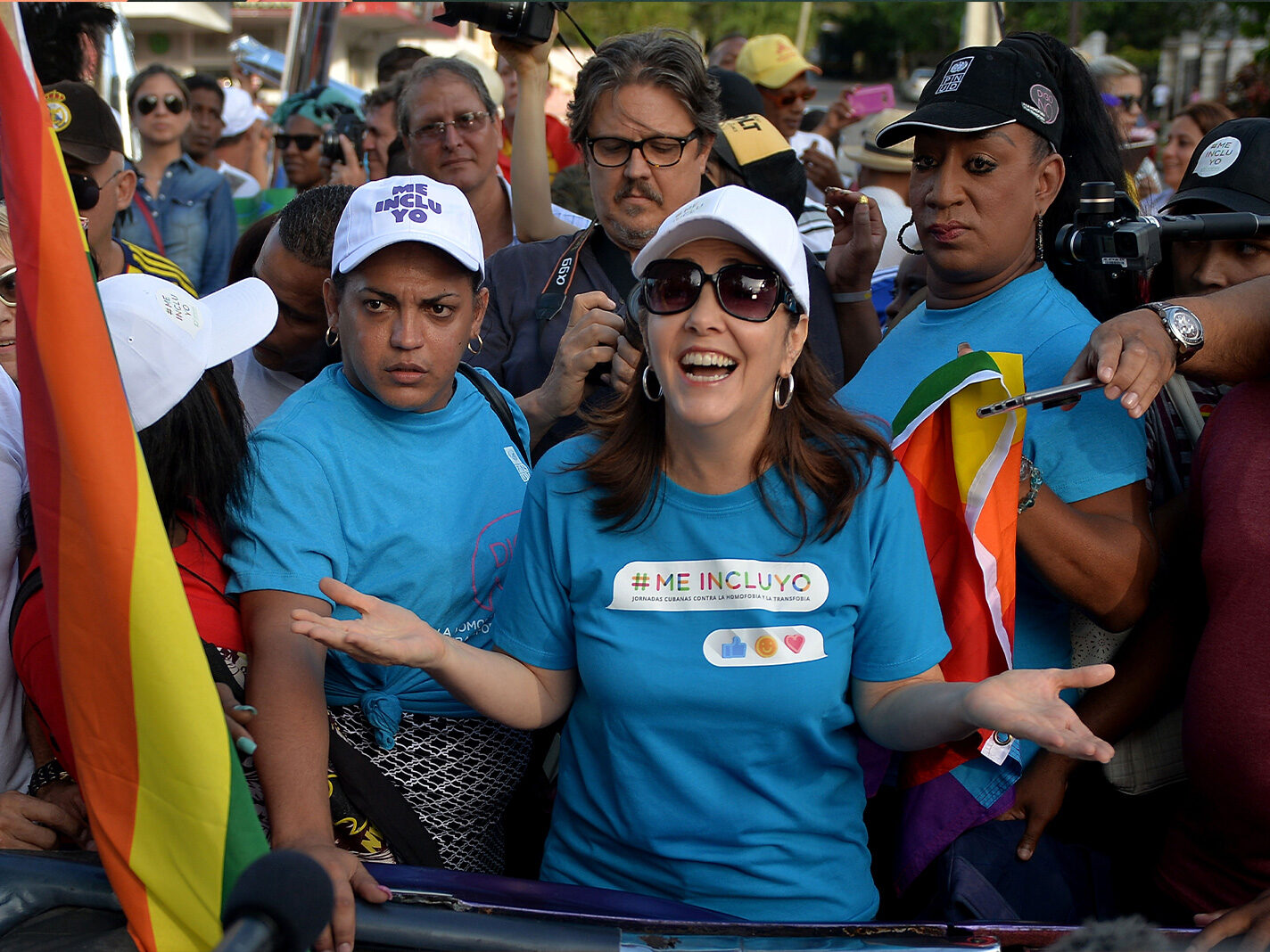As Cuba begins to mourn the passing of Fidel Castro there’ll no doubt be plenty of words written on his legacy. For many in the LGBT community in Cuba, that means looking back at the policies and rhetoric that made living in post-revolution Cuba a struggle. Indeed, already in 2010 the former president had spoken of his regime’s strong stance against homosexuality in the early days as a “great injustice.” That admission signaled a change in the way the communist nation spoke to and about its homegrown LGBT community.
Jon Alpert’s timely documentary Mariela Castro’s March: Cuba’s LGBT Revolution offers a snapshot of a country grappling with its machismo and its homophobia. Following Mariela as she travels the country promoting LGBT equality, this new HBO project chronicles the great strides her activism has already made while hinting at the work still to be done. For every moment of celebration at one of Castro’s much-publicized and well-attended pride marches, there are interactions with Cubans in rural areas that suggest there’s plenty of prejudice affecting the lives of gays and lesbians on the island.
As she says in the film, “I decided to fight this prejudice knowing that in Cuba’s macho society would be difficult. Even if your last name is Castro.” Many would say that whatever political weight her last name carries (she’s Raúl Castro’s daughter, and was Fidel’s niece) is also tempered by the legacy her uncle’s regime left behind. As many of the older Cubans interviewed by Alpert point out, the early days of the revolution made gays and lesbians feel unwelcome in the new imagined Cuba of Castro: many were sent to work camps, others deported. There are many today who carry with them the physical and emotional scars of those days.
Mariela Castro’s March is proof that the past decade has raised the visibility and the equality of the Cuban LGBT community. Thanks in part to the work of Mariela’s National Center for Sex Education (CENESEX), the Caribbean nation has begun seeing the community really come together and fight publicly for legal protections. And at the heart of it all are these marches which bring together those hopeful for a more inclusive Cuba. It’s the intersection between that nationalism and the push for LGBT equality that’s perhaps most revelatory to those wishing to learn more about what the film dubs “Cuba’s LGBT revolution.” No sooner does Castro, for example, call out for the end of discrimination that she yells for national unity: “Viva la revolución Cubana!” Those in attendance echo her words and erupt in applause.
Mariela Castro’s March is available now.




